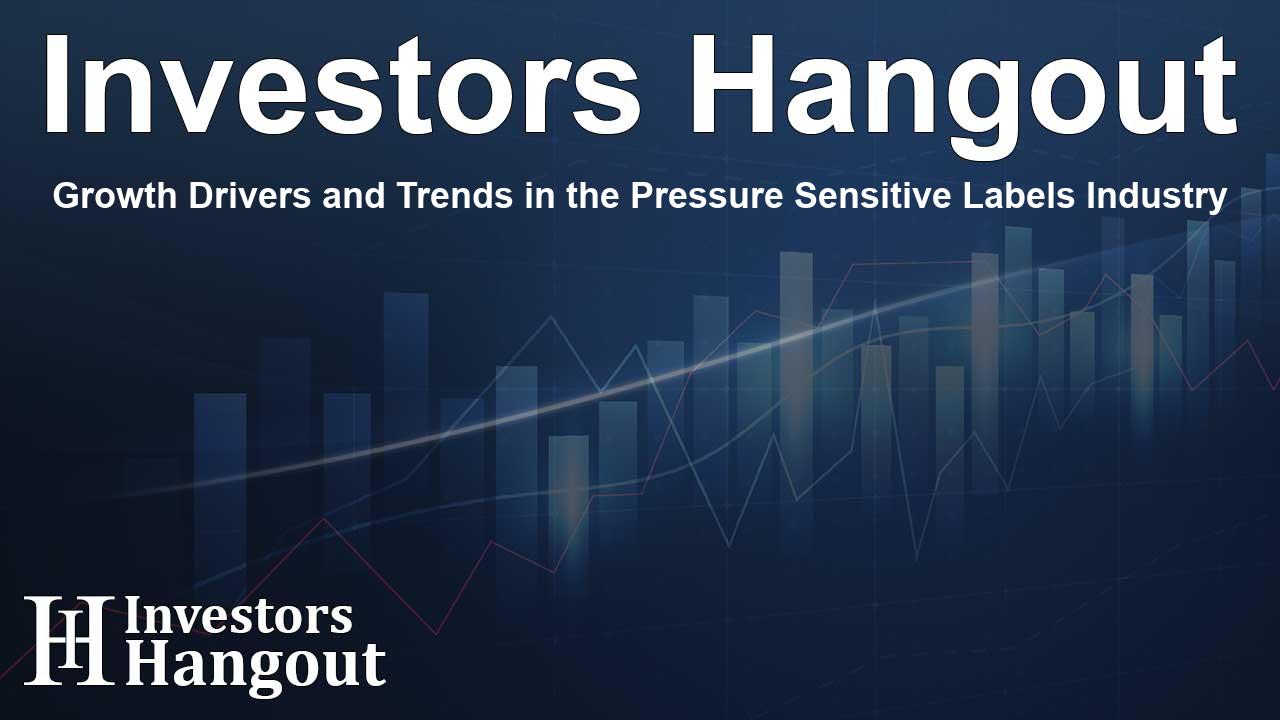Growth Drivers and Trends in the Pressure Sensitive Labels Industry

Growing Demand for Pressure Sensitive Labels: Key Insights
The global pressure sensitive labels market is poised for significant growth, evolving into a USD 162.41 billion industry over the next decade. This surge is propelled by an increasing demand for sustainable and adaptable labeling solutions. Industries such as food and beverages, pharmaceuticals, and consumer durables are particularly benefiting from innovative labeling technologies, marking this an exciting time for stakeholders in the market.
Understanding Pressure Sensitive Labels
Pressure sensitive labels are unique self-adhesive labels that bond to surfaces with minimal pressure, negating the need for additional adhesives. They are constructed in three layers, including the adhesive, release liner, and face material. Their versatility makes them suitable for a wide array of applications from food packaging and pharmaceuticals to cosmetics.
Government Initiatives Paving the Way
Government regulations globally are shaping the future of the pressure sensitive labels industry. Policies such as Extended Producer Responsibility (EPR) are holding manufacturers accountable for the complete lifecycle of their products, prompting a shift towards recyclable materials. Furthermore, initiatives like the Globally Harmonized System (GHS) are ensuring standardization in chemical labeling, while various food and drug safety regulations are necessitating high-quality labels that comply with industry standards. The promotional push for ecolabel certification programs also encourages brands to adopt eco-friendly labeling solutions.
Emerging Trends in Labeling
As sustainability rises to the forefront of consumer preferences, labels made from recyclable and biodegradable materials are gaining traction. New eco-friendly labeling technologies, including smart labels embedded with NFC and QR codes, enhance the functionality of traditional labels, creating exciting engagement opportunities for brands and consumers alike. Further, advancements in digital printing technology allow businesses to produce customized and cost-effective labels, driving the demand for innovative printing solutions.
Market Opportunities and Challenges
The rapid advancement in labeling technologies, especially RFID integration, stands out as a significant opportunity for businesses, providing real-time tracking and enhancing logistics efficiency. Moreover, the food industry is increasingly recognizing the value of RFID-enabled labels to maintain the integrity of products. However, challenges persist; fluctuating raw material costs and stringent regulations pose hurdles that manufacturers must navigate effectively. Balancing cost with quality remains a priority for brands looking to adapt to consumer demands and regulatory requirements.
Regional Dynamics: A Closer Look
The Asia-Pacific region is spearheading the market's growth journey, driven by economic expansion and consumer demand in countries like China and India. These nations have witnessed a surge in various industries, including manufacturing and healthcare, boosting the need for pressure-sensitive labels. The trend toward eco-friendly solutions is also evident, pushing companies to adopt practices such as using linerless labels.
A Focus on Innovative Solutions
As the market moves forward, innovative solutions such as linerless labels are becoming increasingly popular due to their environmental and economic benefits. Large manufacturers, including Avery Dennison and CCL Industries, are at the forefront, adapting their products to meet contemporary demands for efficiency, quality, and sustainability. The pressure sensitive labels market is navigating through a transformative phase, striving to meet consumer expectations while establishing a sustainable future.
Frequently Asked Questions
What are pressure sensitive labels?
Pressure sensitive labels are self-adhesive labels that bond to surfaces with light pressure, featuring a unique three-layered structure that allows for versatile applications.
What drives the growth of the pressure sensitive labels market?
The growth is driven by increased demand for sustainable materials, advancements in labeling technology, and stringent regulations in industries like food and pharmaceuticals.
How do government initiatives impact the industry?
Government initiatives encourage manufacturers to adopt sustainable practices and comply with safety regulations, promoting the use of eco-friendly labeling materials.
What trends should we expect in the labeling market?
Expect to see growth in the use of recyclable and biodegradable materials, along with innovative digital printing technologies and smart labels.
What regions are leading the market?
The Asia-Pacific region is currently leading due to its rapid industrialization and increasing consumer demand, particularly in China and India.
About The Author
Contact Henry Turner privately here. Or send an email with ATTN: Henry Turner as the subject to contact@investorshangout.com.
About Investors Hangout
Investors Hangout is a leading online stock forum for financial discussion and learning, offering a wide range of free tools and resources. It draws in traders of all levels, who exchange market knowledge, investigate trading tactics, and keep an eye on industry developments in real time. Featuring financial articles, stock message boards, quotes, charts, company profiles, and live news updates. Through cooperative learning and a wealth of informational resources, it helps users from novices creating their first portfolios to experts honing their techniques. Join Investors Hangout today: https://investorshangout.com/
The content of this article is based on factual, publicly available information and does not represent legal, financial, or investment advice. Investors Hangout does not offer financial advice, and the author is not a licensed financial advisor. Consult a qualified advisor before making any financial or investment decisions based on this article. This article should not be considered advice to purchase, sell, or hold any securities or other investments. If any of the material provided here is inaccurate, please contact us for corrections.
